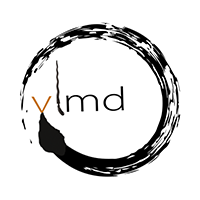The holidays have been a time for me to catch up and friends and these last few weeks have been particularly poignant. Most of them are professionals in the 45-65 age bracket, with hard-won respect and success in their careers. And yet as we reflected on the past year, many were wincing because this was the nth time they’ve made the same New Year’s resolution year after year. While they have had success in many areas of life there was often a lingering feeling that something was missing. Life was passing by and they were nowhere near the dreams they still secretly cultivated.
As people who appreciate intellectual pursuits, value personal development, and yearn for a deeper sense of purpose and meaning, this gap in what they aspired to be and where they were stung more intensely with each passing year. Many had attained financial success, but shared they felt they were on the brink of burnout or a midlife crisis. They had the plaguing thought that now it was time to invest in the most important asset, themselves, but in light of that “recurring resolution that never got resolved,” how could they ever hope to achieve their goal?
When it came to their health goals at least, I knew why they were stuck. The standards set by the current medical system is the lowest definition of health–the absence of disease. With this low bar and the inability to articulate the full expression of what health means, is it any wonder that people never inhabit the vitality that life presents all around us every moment?
Imminent immunologist, Ruslan Medzhitov, defined health as a state of both robustness and resilience. Robustness in that we resist succumbing to disease and injury and resilience in that if we have succumbed, we are able to tolerate and recover from sickness. I would add responsiveness to that definition, such that in the fullness of our human experience we are also able to respond and interact with our world in thoughtful and meaningful ways.
But achieving this state of health would require us to set tangible, measurable standards, clear benchmarks such that we know if we’ve attained it or not. Physical health should not be a vague, indistinct target which defies identification; mental and emotional health become natural extensions of physical vibrance.
I propose that in order to set a resolution that we can finally attain, we should ask ourselves the following sets of questions:
- How robust am I? How well do I resist illness and the wear and tear of daily life? What strategies can I employ to increase my robustness?
- How resilient am I in the face of disease and stress? How well do I manage and control my states of arousal to achieve the optimal balance between over- and under-stimulation? What strategies can I use to stretch my resilience?
- How responsive am I to the world around me, to my work, my community, Nature? The root of the word being to ‘pledge again’, how do I commit to life? How do I show my love for life? How do I refine and explore the textures of responsiveness in my life?
I dare say if we tackle those questions with honesty and patience they will help us resolve more than our goal to attain physical health. They might just save us from an unlived life.

